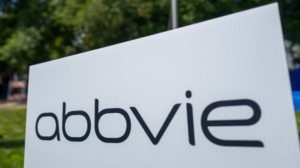FDA Approves AbbVie’s Dalvance for Acute Skin Infections in Children
FDA Greenlights AbbVie’s Antibiotic Dalvance for Acute Skin Infections in Children
The U.S. Food and Drug Administration (FDA) approved AbbVie’s Dalvance (dalbavancin) for acute bacterial skin and skin structure infections (ABSSSI) in pediatric patients as young as newborns. The drug is given in a single-dose as a 30-mintue intravenous infusion. This approval is specifically for the treatment of ABSSSI caused by certain susceptible Gram-positive bacteria in children, including infections caused by methicillin-resistant Staphylococcus aureus (MRSA).
This is not the only recent approval for this indication. In March 2021, the FDA approved Melinta Therapeutics’ Kimrysa for that indication, which became available this month. That is a one-hour, single-dose regimen approved for adults.
ABSSSI affect about 14 million people in the U.S. annually, resulting in more than 3 million emergency room visits. They cause U.S. hospitals about $4 billion annually, with a 4-day average length of stay.
ABSSSI are common, but can be life-threatening, particularly in children. The most common types of skin infections seen by pediatricians are cutaneous abscesses and cellulitis. In the U.S., ABSSSI causes 3 million pediatric visits to doctors or emergency rooms each year.
“Serious infections in children can be difficult to treat and the impact of ABSSSI in children is significant, as these infections often require IV antibiotics, resulting in hospitalization,” said Margaret Burroughs, medical director, infectious diseases, AbbVie. “This pediatric approval for Dalvance as a single-dose provides a meaningful contribution to the treatment of children and infants with ABSSSI.”
The approval was built on data from a trial that evaluated Dalvance in pediatric patients from newborn to less than 18 years of age with ABSSSI, as well as three pharmacokinetic studies. In the clinical trial, the safety and efficacy were tested along with intravenous vancomycin for methicillin-resistant Gram-positive infections, or intravenous oxacillin or flucloxacillin for methicillin-susceptible Gram-positive infections.
The analysis in the pediatric trial was on 183 patients with ABSSSI in the Modified Intent-to-Treat (mITT) population. That included all the patients who had been randomized to receive any dose of the drug who had ABSSSI caused by Gram-positive bacteria. They looked at an early clinical response at 48 to 72 hours based on a greater than or equal to 20% decrease in size of the lesions compared to baseline as well as on the need for rescue antibacterial therapy for children who were three months of age and older.
In the study, 97.3% of patients in the Dalvance single-dose arm demonstrated an early clinical response, and 93.6% had an early clinical response in the two-dose arm, while 86.7% did in the comparator arm. The safety data in the children was similar to what was seen in adults.
The drug is a second-generation, semi-synthetic lipoglycopeptide. It is made up of a lipophilic side-chain attached to an enhanced glycopeptide backbone. Dalvance is approved for adults with ABSSSI caused by susceptible Gram-positive bacterium, such as Staphylococcus aureus, including MRSA, Streptococcus pyogenes, Streptococcus agalactiae, Streptococcus dysgalactiae, Streptococcus anginosus group, and Enterococcus faecalis.
It was first approved for adults with skin infections in May 2014. At that time it was developed by Durata Therapeutics. Durata was acquired by Actavis in 2014 for $675 million. Actavis acquired Allergan in 2015 and changed the company name to Allergan. AbbVie completed its acquisition of Allergan in May 2020 in a deal worth about $63 billion.
BioSpace source:




